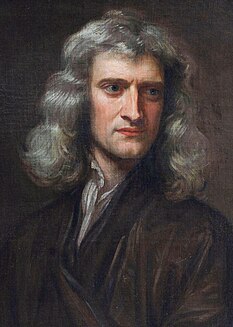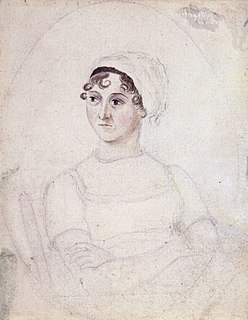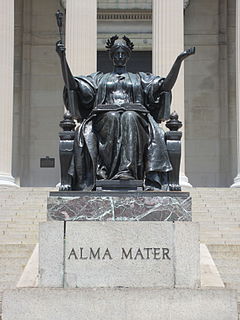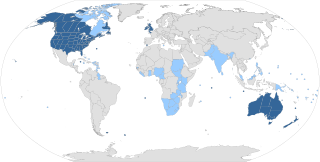Related Research Articles

Cambridge is a city in Middlesex County, Massachusetts, and part of the Boston metropolitan area as a major suburb of Boston. As of July 2019, it was the fifth most populous city in the state, behind Boston, Worcester, Springfield, and Lowell. According to the 2010 Census, the city's population was 105,162. It is one of two de jure county seats of Middlesex County, although the county's government was abolished in 1997. Situated directly north of Boston, across the Charles River, it was named in honor of the University of Cambridge in England, once also an important center of the Puritan theology embraced by the town's founders.

Cambridgeshire is a county in the East of England, bordering Lincolnshire to the north, Norfolk to the north-east, Suffolk to the east, Essex and Hertfordshire to the south, and Bedfordshire and Northamptonshire to the west. The city of Cambridge is the county town. Following the Local Government Act 1972 restructuring, modern Cambridgeshire was formed in 1974 through the amalgamation of two administrative counties: Cambridgeshire and Isle of Ely, comprising the historic county of Cambridgeshire ; and Huntingdon and Peterborough, comprising the historic county of Huntingdonshire and the Soke of Peterborough, historically part of Northamptonshire. Cambridgeshire contains most of the region known as Silicon Fen.

The Tragedy of Hamlet, Prince of Denmark, often shortened to Hamlet, is a tragedy written by William Shakespeare sometime between 1599 and 1601. It is Shakespeare's longest play, with 29,551 words. Set in Denmark, the play depicts Prince Hamlet and his revenge against his uncle, Claudius, who has murdered Hamlet's father in order to seize his throne and marry Hamlet's mother.

Sir Isaac Newton was an English mathematician, physicist, astronomer, theologian, and author who is widely recognised as one of the greatest mathematicians and most influential scientists of all time. A key figure in the scientific revolution, his book Philosophiæ Naturalis Principia Mathematica, first published in 1687, established classical mechanics. Newton also made seminal contributions to optics, and shares credit with German mathematician Gottfried Wilhelm Leibniz for developing the infinitesimal calculus.

Jane Austen was an English novelist known primarily for her six major novels, which interpret, critique and comment upon the British landed gentry at the end of the 18th century. Austen's plots often explore the dependence of women on marriage in the pursuit of favourable social standing and economic security. Her works critique the novels of sensibility of the second half of the 18th century and are part of the transition to 19th-century literary realism. Her use of biting irony, along with her realism, humour, and social commentary, have long earned her acclaim among critics, scholars, and popular audiences alike.

Macbeth is a tragedy by William Shakespeare; it is thought to have been first performed in 1606. It dramatises the damaging physical and psychological effects of political ambition on those who seek power for its own sake. Of all the plays that Shakespeare wrote during the reign of James I, who was patron of Shakespeare's acting company, Macbeth most clearly reflects the playwright's relationship with his sovereign. It was first published in the Folio of 1623, possibly from a prompt book, and is Shakespeare's shortest tragedy.

Trinity College is a constituent college of the University of Cambridge. The college was founded in 1546 by King Henry VIII. Trinity is one of the oldest and largest colleges in Cambridge, with the largest financial endowment of any college at either Cambridge or Oxford. Trinity is renowned for having some of the most distinctive architecture within Cambridge, with its Great Court reputed to be the largest enclosed courtyard in Europe. Academically, Trinity performs exceptionally as measured by the Tompkins Table, coming in first from 2011 to 2017, with 42.5% of undergraduates obtaining a first class result in 2019.

William Shakespeare was an English playwright, poet, and actor, widely regarded as the greatest writer in the English language and the world's greatest dramatist. He is often called England's national poet and the "Bard of Avon". His extant works, including collaborations, consist of some 39 plays, 154 sonnets, three long narrative poems, and a few other verses, some of uncertain authorship. His plays have been translated into every major living language and are performed more often than those of any other playwright. They also continue to be studied and reinterpreted.

Cambridge is a university city and the county town of Cambridgeshire, England, on the River Cam approximately 55 miles (89 km) north of London. At the United Kingdom Census 2011, the population of the Cambridge built-up area was 158,434 including 29,327 students. Cambridge became an important trading centre during the Roman and Viking ages, and there is archaeological evidence of settlement in the area as early as the Bronze Age. The first town charters were granted in the 12th century, although modern city status was not officially conferred until 1951.

Prince William, Duke of Cambridge, is a member of the British royal family. He is the elder son of Charles, Prince of Wales, and Diana, Princess of Wales. Since birth, he has been second in the line of succession to the British throne.

Cambridge University Press (CUP) is the publishing business of the University of Cambridge. Granted letters patent by King Henry VIII in 1534, it is the oldest university press in the world. It is also the Queen's Printer.
Bachelor of Arts is the holder of a bachelor's degree awarded for an undergraduate program in the arts, science and commerce. A Bachelor of Arts degree course is generally completed in three or four years, depending on the country and institution.

Alma mater is an allegorical Latin phrase currently used to identify a school, college, or university that one formerly attended. The phrase is variously translated as "nourishing mother", "nursing mother", or "fostering mother", suggesting that a school provides intellectual nourishment to her students.

Cambridge United Football Club is a professional association football club based in the city of Cambridge, Cambridgeshire, England. From the 2021–22 season, the club will compete in League One, the third tier of the English football league system, following promotion from League Two. The club is based at the Abbey Stadium on Newmarket Road, approximately 1.86 miles east of Cambridge city centre. The stadium has a capacity of 8,127, made up of terracing and seated areas.

The Boat Race is an annual set of rowing races between the Cambridge University Boat Club and the Oxford University Boat Club, traditionally rowed between open-weight eights on the River Thames in London, England. There are separate men's and women's races, as well as races for reserve crews. It is also known as the University Boat Race and the Oxford and Cambridge Boat Race.

Catherine, Duchess of Cambridge, is a member of the British royal family. Her husband, Prince William, Duke of Cambridge, is second in the line of succession to the British throne, making Catherine a likely future queen consort.

Libra (♎︎) is the seventh astrological sign in the Zodiac. Libra is Latin for scales. It spans 180°–210° celestial longitude. The Sun transits this sign on average between September 23 and October 23. Under the sidereal zodiac, the Sun currently transits the constellation of Libra from approximately October 31 to November 22. The symbol of the scales is based on the Scales of Justice held by Themis, the Greek personification of divine law and custom. She became the inspiration for modern depictions of Lady Justice. The ruling planet of Libra is Venus. Libra is the only zodiac constellation represented by an inanimate object; with the other eleven signs represented by either an animal or mythological character.

English is a West Germanic language originally spoken by the inhabitants of early medieval England. It is named after the Angles, one of the ancient Germanic peoples that migrated to the area of Great Britain, which later took their name, England. Both names derive from Anglia, a peninsula on the Baltic Sea. English is most closely related to Frisian and Low Saxon, while its vocabulary has been significantly influenced by other Germanic languages, particularly Old Norse, as well as Latin and French.

The University of Cambridge is a collegiate research university in Cambridge, United Kingdom. Founded in 1209 and granted a royal charter by Henry III in 1231, Cambridge is the second-oldest university in the English-speaking world and the world's fourth-oldest surviving university, and one of the most prestigious academic institutions in the world. The university grew out of an association of scholars who left the University of Oxford after a dispute with the townspeople. The two English ancient universities share many common features and are often jointly referred to as Oxbridge. In turn, Cambridge-educated John Harvard and other founders would establish Harvard University, inspired by the English model, in the eponymous Cambridge, Massachusetts.
References
- ↑ Fryde, E. B.; Greenway, D. E.; Porter, S.; Roy, I. (1986). Handbook of British Chronology (3rd ed.). Cambridge: Cambridge University Press. p. 216. ISBN 0-521-56350-X.